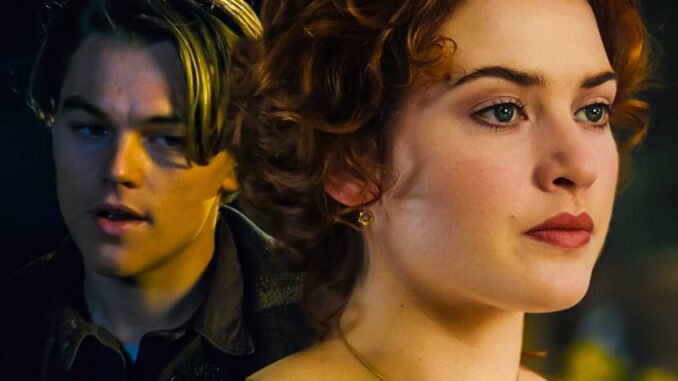
The Ironic Anchor: Why Rose's Surname Choice on the Titanic's Deck Rings Hollow
The Titanic. The name itself conjures images of opulence, tragedy, and the enduring tale of Jack and Rose. Their story, a timeless romance born amidst class divisions and impending doom, has captivated audiences for generations. Yet, even within this cherished narrative, a niggling detail remains, a discordance in the harmony of Rose's final act of defiance: her changing her surname to "Dawson" in honor of Jack. While intended as a poignant tribute, Rose's choice, upon closer examination, reveals a deeper problem – a romanticization of freedom that ironically anchors her to the very societal constraints she appears to reject.
On the surface, Rose's decision is undeniably powerful. Standing on the deck of the Carpathia, witnessing the Statue of Liberty, she announces herself as Rose Dawson, symbolically severing ties with her suffocating past and embracing a future defined by liberation and self-discovery. It's a visual proclamation of love, loyalty, and a rejection of the gilded cage that had threatened to trap her. In that moment, she is reclaiming her agency, rewriting her narrative, and choosing a life forged in the fires of tragedy and fueled by the memory of Jack's selfless love.
However, the problem lies in the inherent contradiction of using Jack's identity to achieve this freedom. Rose, in essence, is taking on his name, his history, and his background – a background she has no organic connection to. While she may empathize with his plight and admire his free spirit, she is not authentically Dawson. She is adopting a persona, albeit with the best of intentions, and in doing so, she inadvertently perpetuates the very act of social appropriation that fueled the societal divide aboard the Titanic.
Think about it: Rose, raised in privilege and bound by the expectations of her social class, had the resources and opportunities that Jack could only dream of. He, a struggling artist from a working-class background, was defined by his financial limitations. By adopting his name, Rose is, in a way, appropriating his identity. She is enjoying the privilege of choice that Jack never had, the ability to reinvent herself and escape her past, a luxury afforded to her by her social standing even in the wake of catastrophe.
Furthermore, Rose's choice subtly reinforces the very class distinctions the film ostensibly critiques. The name "Dawson" becomes a symbol, a mantle of freedom and genuine connection that she wears, yet it remains detached from her lived experience. It's as if she is saying, "I am now one of you," without truly understanding the realities of the working-class life that Jack embodied. It's a gesture of empathy that borders on romanticism, reducing Jack to a symbol of liberation rather than acknowledging him as a complex individual shaped by his unique circumstances.
The irony deepens when considering the alternative. Rose could have chosen to forge a new identity entirely, a name unrelated to either her past or Jack. This would have been a truly radical act of self-definition, a complete break from the constraints of her upbringing and a genuine embrace of the unknown. Instead, she chooses to define herself through another person, albeit a person she deeply loved. This, in turn, suggests a lingering dependence on external validation, even in her newfound freedom. She needs Jack's name to legitimize her transformation, implying that her own identity isn't strong enough to stand alone.
Ultimately, Rose's decision to become Rose Dawson is a complex and layered one. It's a testament to the enduring power of love, the allure of social rebellion, and the enduring human need for connection. However, it also reveals a problematic undercurrent – a romanticization of the working class, a subtle appropriation of identity, and a lingering dependence on external validation. While intended as a symbol of liberation, Rose's surname choice, in its own ironic way, becomes an anchor, tethering her to the very social structures she claims to have escaped, a constant reminder of the divide that initially separated her from the man she loved and the life she ultimately chose to embrace. It leaves us pondering: was her ultimate freedom truly realized, or did she merely trade one gilded cage for another, one forged from the memory of a love lost at sea?